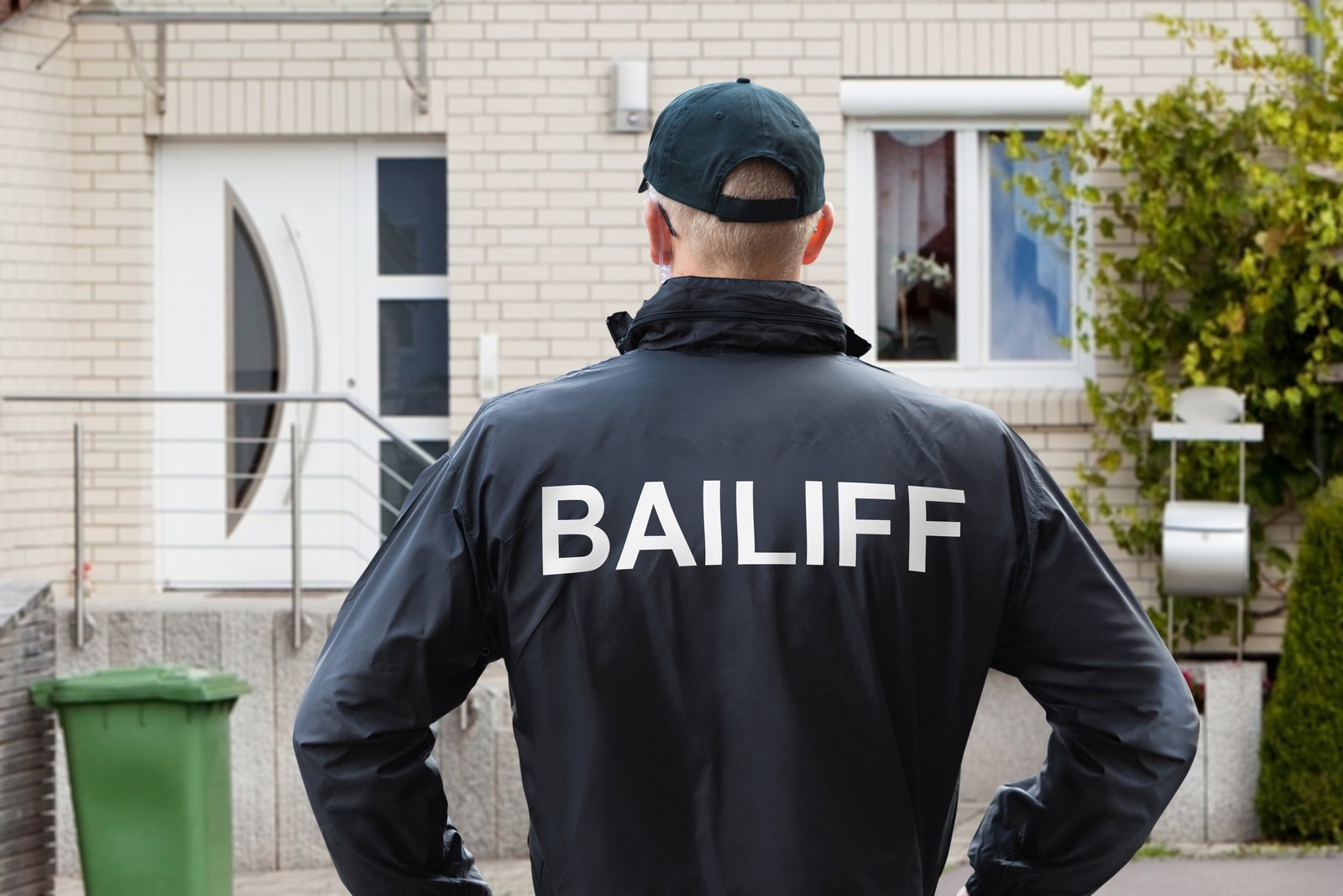Dealing with bailiffs can be one of the most difficult aspects of dealing with debt. If you’re dreading a doorstep visit, you’re not alone; most of the 2m people in England and Wales contacted by bailiffs have reported experiencing intimidating behaviour.
While no-one looks forward to a visit from the bailiffs, there are rules that should be followed to ensure the process isn’t more distressing than it needs to be. However, with no statutory regulation and little external oversight of the industry, rogue bailiffs can sometimes act inappropriately.
According to a recent Citizens Advice survey, nearly 60% of the 2m people who have been contacted by bailiffs during the current cost-of-living crisis have felt harassed or intimidated. Over a third of people interacting with bailiffs also experienced behaviour that is in breach of Ministry of Justice rules.
Rule-breaking behaviour reported includes bailiffs misrepresenting their powers, threatening to break into properties, forcing their way into homes, and taking goods people need for work. Others have also failed to take vulnerabilities such as a disability or serious illness into account.
Bailiff bad behaviour can affect people’s mental health as well as their finances. 72% of those who have interacted with a bailiff said it has impacted their mental health, leaving them feeling unsafe at home, afraid to answer the door, or unwilling to leave the house.
49% also reported facing long-term financial consequences due to bailiff fees. £250m in fees has been added to people’s debts by bailiffs in the last 18 months, forcing people deeper into financial hardship, making their debt harder to manage, and leading people to take out new types of debt to cover other bills as well as their bailiff fees.
What powers do bailiffs have when visiting your home?
It’s important to know that bailiffs can only force entry to your home if they’re collecting an unpaid Magistrates’ Court fine or tax debt on behalf of HM Revenue & Customs.
Otherwise, a bailiff can only force entry if all three of the following conditions are met:
- They’ve already taken control of the goods inside your home
- You’ve previously made a controlled goods agreements with them but have now broken it by missing at least one payment
- They’ve given you two days’ notice that they’re going to inspect or take goods
They might be able to enter if they find an unlocked door or open garden gate, but they can’t try to come through a latched window, use a ladder to hop over the fence, or attempt to use intimidation tactics like blocking the door to stop you from closing it.
Bailiffs should also not use offensive language; repeatedly call, text, or visit you; or tell your neighbours that you’re in debt. They shouldn’t remove – or threaten to take – any items you don’t own as well as any essentials you need to live or work. Your oven, fridge, bedding, dining table, heating appliances, and lighting fixtures should all be left behind. They also shouldn’t attempt to remove fitted furniture, medical equipment, or pet supplies.
What should I do if a bailiff threatens or intimidates me?
If a bailiff visits your property and tries to threaten or intimate you, your safety is the most important thing. Remember your rights and don’t let them come into your home. If possible, take note of their name and any other identifying information such as their ID number as this could come in handy if you need to make a complaint. Don’t hesitate to call 999 if you feel at risk and, if the police do come and intervene, you can also include your crime reference number when making an official complaint to the bailiff company or court.
How should a bailiff act if I’m classed as vulnerable?
While all bailiffs should be considerate in the way they treat the people they meet, this is especially important when dealing with people who are classed as vulnerable. There are many situations that may make you fall into this category and people who are considered vulnerable include:
- People with a disability
- People who are seriously ill
- People with mental health concerns
- People who have young children or are pregnant
- People aged under 18 or over 65
- People who don’t speak or read English well
There are also circumstances that could make you temporarily vulnerable such as having recently experienced a stressful or emotional event like a bereavement, being a victim of crime, or losing your job.
If you’re classed as vulnerable, be sure to let the bailiffs know. They should treat you with more care, give you more time to respond to their letters or phone calls, and must not enter your home if you’re alone. They should also never take – or even threaten to take – items that you need for your health.
Can I complain about a bailiff’s behaviour?
Where you should make a complaint about a bailiff’s behaviour will depend on whether they’re a private bailiff, a County Court bailiff, or a bailiff appointed by the Magistrates’ Court.
If you dealt with a private bailiff, you could complain directly to the company that employs them, whereas if you’ve been visited by a bailiff acting on behalf of your local council, lodge your complaint with them.
You may also be able to escalate your grievance further if the bailiff is court appointed or a member of a trade organisation.
Unfortunately, not every bailiff currently chooses to be accredited by the Enforcement Conduct Board. This might change in the future as the Ministry of Justice plans to make body worn video cameras compulsory to help hold private bailiffs to account.
How to avoid a visit from the bailiffs
Taking steps to take control of your debt can help you avoid a visit from the bailiffs altogether. Don’t be afraid to try and negotiate; you might be able to agree to pay a reduced amount or split the debt into more affordable instalments. However, exploring debt management solutions as soon as you start struggling with your debt could give you even more options. Depending on your circumstances, an expert debt adviser could help you enter breathing space, agree a debt management plan, or start an IVA.
Facing a visit from the bailiffs? Our team is here to help. Give us a call on 0161 660 7255 or send a message here.







